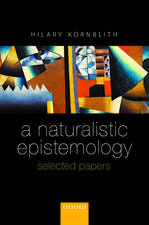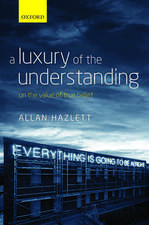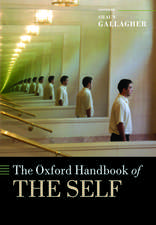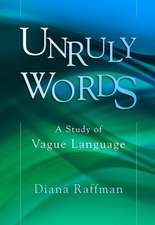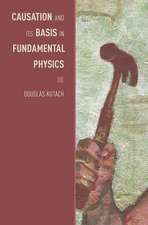Counterfactuals and Probability
Autor Moritz Schulzen Limba Engleză Hardback – 2 feb 2017
Preț: 460.22 lei
Preț vechi: 637.11 lei
-28% Nou
Puncte Express: 690
Preț estimativ în valută:
88.09€ • 95.72$ • 74.04£
88.09€ • 95.72$ • 74.04£
Carte tipărită la comandă
Livrare economică 10-16 aprilie
Preluare comenzi: 021 569.72.76
Specificații
ISBN-13: 9780198785958
ISBN-10: 019878595X
Pagini: 248
Dimensiuni: 152 x 223 x 20 mm
Greutate: 0.42 kg
Editura: OUP OXFORD
Colecția OUP Oxford
Locul publicării:Oxford, United Kingdom
ISBN-10: 019878595X
Pagini: 248
Dimensiuni: 152 x 223 x 20 mm
Greutate: 0.42 kg
Editura: OUP OXFORD
Colecția OUP Oxford
Locul publicării:Oxford, United Kingdom
Recenzii
This is an exciting investigation of the semantics of counterfactuals that I highly recommend to both experts and people who want to catch up with recent results in the literature. It addresses both epistemic and metaphysical aspects of counterfactuals, and develops a novel refinement of the standard semantics. ... a well written and original study that merits reading from various perspectives.
Notă biografică
Moritz Schulz studied Mathematics and Philosophy at the University of Hamburg before completing a BPhil at Oxford University. Shultz received his PhD from the Humboldt University of Berlin in 2011. Since then, he completed a post-doc at the University of Barcelona and acted as an assistant at the University of Tübingen before taking up his current role as junior professor at the University of Hamburg.


